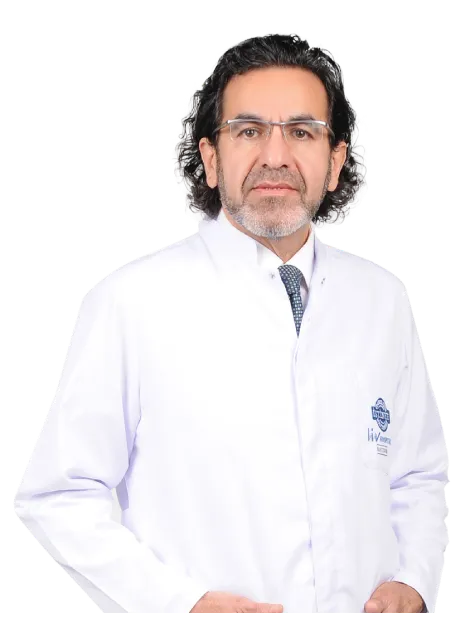What are three warning signs of cancer? Common signs include losing weight and changes in the skin. These can hint at cancer.
Spotting the warning signs tumors is key. It helps catch cancer early and treat it better.
Key Takeaways
- Early detection of cancer is key for good treatment.
- Cancer symptoms vary based on the tumor’s location and size.
- Common symptoms are weight loss and skin changes.
- Spotting warning signs can lead to quick medical help.
- Knowing cancer early symptoms can save lives.

Understanding Cancer and Its Early Detection
Early cancer detection is key to better treatment outcomes. Cancer is a disease where cells grow out of control. It can come from genetic changes. Knowing how cancer starts and why early detection is important is vital for managing and treating it.
Why Early Detection Matters
Early cancer detection is vital for better survival rates.. If caught early, many cancers can be treated or even cured.
How Cancer Develops in the Body
Cancer starts with DNA mutations in cells, causing them to grow uncontrollably. These mutations can come from genetics, environment, or lifestyle. The process includes genetic changes, cell growth, and tumor formation. It can spread to other parts of the body.
| Stage | Description | Characteristics |
| Initiation | Genetic mutation occurs | DNA damage in cells |
| Promotion | Mutated cells begin to proliferate | Uncontrolled cell growth |
| Progression | Tumor forms and potentially metastasizes | Invasion and metastasis |
Persistent Fatigue: A Key Warning Sign of Cancer
Persistent fatigue is a sign of cancer that’s often missed. It’s when you’re always tired, even after sleeping a lot.Cancer cells take nutrients from your body to grow.
Distinguishing Cancer-Related Fatigue
Cancer-related fatigue is not just being tired. It’s a deep, lasting tiredness that doesn’t go away with rest. This kind of fatigue can really interfere with your daily life.
Types of Cancer Associated with Extreme Fatigue
Many cancers are linked to persistent fatigue. These include:
- Leukemia
- Lymphoma
- Colon cancer
- Lung cancer
These cancers make you tired because your body fights them and they disrupt normal functions.
When to Seek Medical Attention
If you’re always tired and can’t shake it, see a doctor. Catching cancer early can help a lot. Watch for other cancer early symptoms like losing weight without trying or changes in your skin or moles.
Don’t ignore persistent fatigue. It might mean you need to see a doctor.
Unexplained Weight Loss: When to Be Concerned
Significant unexplained weight loss is a red flag that warrants medical attention. It can be associated with various cancer This is because cancer cells can alter the body’s metabolism and reduce appetite.
What Constitutes Significant Weight Loss
Losing weight without trying, and it’s significant (more than 5% of your body weight over 6-12 months), is a warning sign. For example, if you weigh 150 pounds, losing more than 7.5 pounds over 6 months is a cause for concern. This is without changing your diet or exercise routine.
How Cancer Causes Weight Loss
Cancer can cause weight loss in several ways. It can increase the body’s metabolic rate, making it burn more calories. Cancer can also decrease appetite, making it hard to consume enough calories. Some cancers can affect the digestive system, impairing nutrient absorption.
Cancers Commonly Associated with Unexplained Weight Loss
Several types of cancer are commonly linked with unexplained weight loss, including:
- Pancreatic cancer
- Lung cancer
- Colon cancer
- Leukemia
- Lymphoma
When Weight Loss Requires Medical Attention
If you’re experiencing unexplained weight loss, it’s important to see a healthcare professional. They will perform a thorough examination, including blood tests and imaging studies. This is to determine the underlying cause. Early detection is key to effective treatment.
Unusual Lumps and Growths: What to Look For
Spotting cancer early means noticing odd body changes, like new lumps or growths. The Common Locations for Cancerous Lumps
Cancerous lumps can pop up in different body parts. They often show up in the breast, testicles, lymph nodes, and soft tissues. Keep an eye out for any new or changing lumps in these spots.
Distinguishing Between Benign and Potentially Malignant Lumps
Not every lump is cancer; many are harmless. But telling the difference between harmless and possibly cancerous lumps is tricky without a doctor’s check-up. Look out for lumps that grow fast, have an odd shape, or feel hard.
Key characteristics to watch for:
- Rapid growth
- Irregular shape
- Hardness
- Fixation to surrounding tissues
Self-Examination Techniques
Doing regular self-checks can help spot lumps early. For breast checks, use your finger pads in a circular motion. For testicles, roll each gently between your fingers to feel for lumps or swelling.
“Early cancer detection greatly improves treatment chances. Staying alert to body changes is key to keeping healthy.”
When to Have a Lump Evaluated by a Doctor
If you find a new lump or a change in an old one, see a doctor right away. Waiting too long can mean missing out on early treatment. Your doctor might do a physical check, imaging tests, or a biopsy to figure out what the lump is.
Even if most lumps aren’t cancer, only a doctor can say for sure what they are.
Skin Changes That May Indicate Cancer
The skin is the body’s largest organ. Changes in it can sometimes mean cancer is present. It’s important to watch for unusual changes to catch cancer early.
Warning Signs in Moles and Pigmented Spots
Changes in moles or spots can warn of skin cancer. Look for moles growing, changing color, or bleeding. Non-Melanoma Skin Cancer Signs
Non-melanoma skin cancers show up as new growths or sores that won’t heal. They often appear on sun-exposed areas like the face, ears, and hands.
The ABCDE Rule for Melanoma Detection
The ABCDE rule helps spot melanomas. It stands for Asymmetry, Border irregularity, Color variation, Diameter greater than 6mm, and Evolving size, shape, or color. This rule aids in catching melanoma early.
Digestive System Warning Signs
It’s important to know the warning signs of the digestive system for early cancer detection. The digestive system breaks down food and absorbs nutrients. Sometimes, it shows symptoms that could mean cancer. These signs include changes in bowel habits, persistent indigestion, trouble swallowing, or blood in stool.
Changes in Bowel Habits
Changes in bowel habits can signal problems in the digestive system. This might be diarrhea, constipation, or changes in stool consistency. These signs can point to colon or rectum cancers. If your bowel habits change a lot, see a doctor.
Persistent Indigestion or Difficulty Swallowing
Persistent indigestion or trouble swallowing (dysphagia) can mean esophagus or stomach cancer. Dysphagia starts with solid foods and can move to liquids. If you have ongoing indigestion, weight loss, or pain, see a doctor.
Blood in Stool or Rectal Bleeding
Blood in stool or rectal bleeding is a serious warning sign. It often means colorectal cancer. The blood might be bright red or make stool look black and tarry. Always check rectal bleeding to find out why it’s happening.
Spotting these warning signs and getting medical help is key to catching cancer early. If you notice any symptoms, talk to a healthcare professional right away.
Respiratory Warning Signs of Cancer
Respiratory health is key, and some symptoms can signal cancer early. Spotting these signs can lead to early detection and save lives.
Persistent Cough and Hoarseness
A cough that lasts for weeks or months might mean lung cancer. Hoarseness or a voice change could point to throat or larynx cancer. If these symptoms stick around, see a doctor.
Shortness of Breath and Chest Pain
Shortness of breath or trouble breathing could hint at lung cancer. Tumors can block airways or harm lung function. Chest pain that gets worse needs a check-up, as it might be linked to respiratory cancers.
Coughing Up Blood
Coughing up blood or rust-colored sputum is a big red flag. It could mean advanced lung cancer or other serious respiratory issues. Get medical help right away.
| Symptom | Possible Cancer Association |
| Persistent Cough | Lung Cancer |
| Hoarseness | Throat or Larynx Cancer |
| Shortness of Breath | Lung Cancer |
| Coughing Up Blood | Lung Cancer |
Knowing these respiratory warning signs can help catch cancer early. If you’re experiencing any symptoms, get medical advice quickly.
Urinary and Reproductive System Warning Signs
Spotting these signs early can really help with treatment.
Changes in Bladder Habits
Changes in how often you pee or if it hurts can be a sign of something wrong. You might notice more frequent urination, painful peeing, or blood in your pee. These signs could point to bladder or other urinary system cancers.
Unusual Bleeding or Discharge
Seeing unusual bleeding or discharge from your reproductive areas is a warning. For example, odd vaginal bleeding could mean cervical or uterine cancer. Discharge from the penis might hint at testicular or prostate cancer.
Pain or Discomfort in Pelvic Region
Don’t ignore pain or discomfort in your pelvic area. It could be linked to cancers like ovarian in women or prostate in men.
| Symptom | Possible Cancer Association |
| Changes in bladder habits | Bladder cancer |
| Unusual bleeding or discharge | Cervical, uterine, testicular, or prostate cancer |
| Pelvic pain or discomfort | Ovarian or prostate cancer |
Neurological Symptoms That Shouldn’t Be Ignored
Neurological symptoms like headaches, seizures, and changes in thinking can hint at cancer. Headaches and Vision Changes
Severe or ongoing headaches, along with vision issues like double vision, could mean neurological problems linked to cancer.
Seizures and Cognitive Changes
Seizures, confusion, or trouble with speech and understanding might mean a brain tumor or other cancers. These symptoms need quick medical help.
Balance and Coordination Problems
Issues with balance, walking, or coordination could be signs of brain or spinal cord cancers. It’s key to get these checked out right away.
| Symptom | Possible Cancer Association |
| Headaches and Vision Changes | Brain Tumor |
| Seizures and Cognitive Changes | Brain Cancer |
| Balance and Coordination Problems | Spinal Cord or Brain Cancer |
Systemic Symptoms: Fever, Night Sweats, and Pain
Cancer can show itself in many ways, like unexplained fever and constant pain.
Unexplained Fever and Night Sweats
Fevers and night sweats can hint at cancer. Night sweats cancer means sweating a lot at night without a reason. Prolonged fever that lasts too long can also be a sign. Cancer can mess with how our body fights off infections and how it uses energy.
Persistent Pain Without Clear Cause
Pain that doesn’t go away can be a sign of cancer. This pain comes from tumors pressing on nerves, bones, or organs. If the pain keeps coming back or gets worse, you should see a doctor.
When Multiple Symptoms Occur Together
If you have unexplained fever, night sweats, and persistent pain all at once, get checked by a doctor. These signs together might mean cancer early symptoms. Catching cancer early is very important for treatment to work.
Risk Factors That Increase the Importance of Monitoring Symptoms
Knowing the risk factors for cancer is key for catching it early and treating it well. Some people are more likely to get cancer because of different factors. It’s important to know about these risks.
Family History and Genetic Predisposition
A family history of cancer can raise your risk a lot. Genetic issues, like BRCA1 and BRCA2 mutations, can also up your chances of getting certain cancers. This includes breast and ovarian cancer.
Lifestyle and Environmental Factors
How you live and what you’re exposed to can affect your cancer risk. Smoking, drinking too much alcohol, eating poorly, and being around harmful substances like asbestos and UV radiation can all increase your risk.
Age and Previous Cancer History
Age is a big factor in cancer, with most cases happening after 50. If you’ve had cancer before, you’re more likely to get it again. This could be in the same place or somewhere else.
Regular Screening Recommendations
If you have risk factors, regular screenings can help find cancer early. This makes treatment more effective.
Conclusion: Taking Action When Cancer Warning Signs Appear
Knowing the early signs of cancer is key to getting help quickly. We’ve talked about signs like constant tiredness, losing weight without trying, lumps, and changes in skin and organs.
Don’t ignore these signs thinking they’re small. Tumors can show up anywhere in the body, and finding them early can help a lot. If you see something odd or feel symptoms that won’t go away, see a doctor right away.
Looking after your health can really help in fighting cancer. Keep up with your body’s changes and get medical help when you need it.
FAQ
What are the common warning signs of cancer that I should be aware of?
Look out for unexplained weight loss and persistent fatigue. Also, watch for unusual lumps or growths and skin changes. Changes in bowel or bladder habits and persistent coughs are signs too. Difficulty swallowing and abnormal bleeding or discharge are also warning signs.
How can I distinguish between normal tiredness and cancer-related fatigue?
Normal tiredness gets better with rest. But, cancer-related fatigue lasts and affects daily life. If tiredness doesn’t get better, talk to your doctor.
What constitutes significant weight loss that could be a sign of cancer?
Losing more than 5% of your body weight in 6-12 months is significant. For example, losing over 7.5 pounds if you weigh 150 pounds is a red flag.
How can I check for unusual lumps or growths, and what should I look for?
Regularly check for new or changing lumps, like in the breast or testicles. Look for lumps that are hard, painless, or irregularly shaped.
What are the warning signs of skin cancer that I should watch for?
Watch for new or changing moles, spots, or sores. Use the ABCDE rule: Asymmetry, Border irregularity, Color variation, Diameter increase, and Evolving shape or size.
Can changes in bowel habits be a sign of cancer, and what should I look out for?
Yes, changes like persistent diarrhea or constipation, or blood in stool, can be signs. If you notice these, talk to your doctor.
What respiratory symptoms could indicate lung cancer?
Look out for a persistent cough, hoarseness, shortness of breath, chest pain, or coughing up blood. If you’re a smoker and notice these, see your doctor.
Are there specific risk factors that make it more important to monitor for cancer symptoms?
Yes, family history, genetic predisposition, age, and previous cancer or environmental exposures increase risk. Monitoring symptoms is more important if you have these risk factors.
What should I do if I’m experiencing multiple potentially cancerous symptoms?
If you have multiple symptoms, see your doctor. Early detection is key to effective treatment.
How often should I get screened for cancer, and what screenings are recommended?
Screening frequency and type depend on age, risk factors, and cancer type. Talk to your doctor about the best schedule for you. Follow guidelines from trusted health organizations.


































